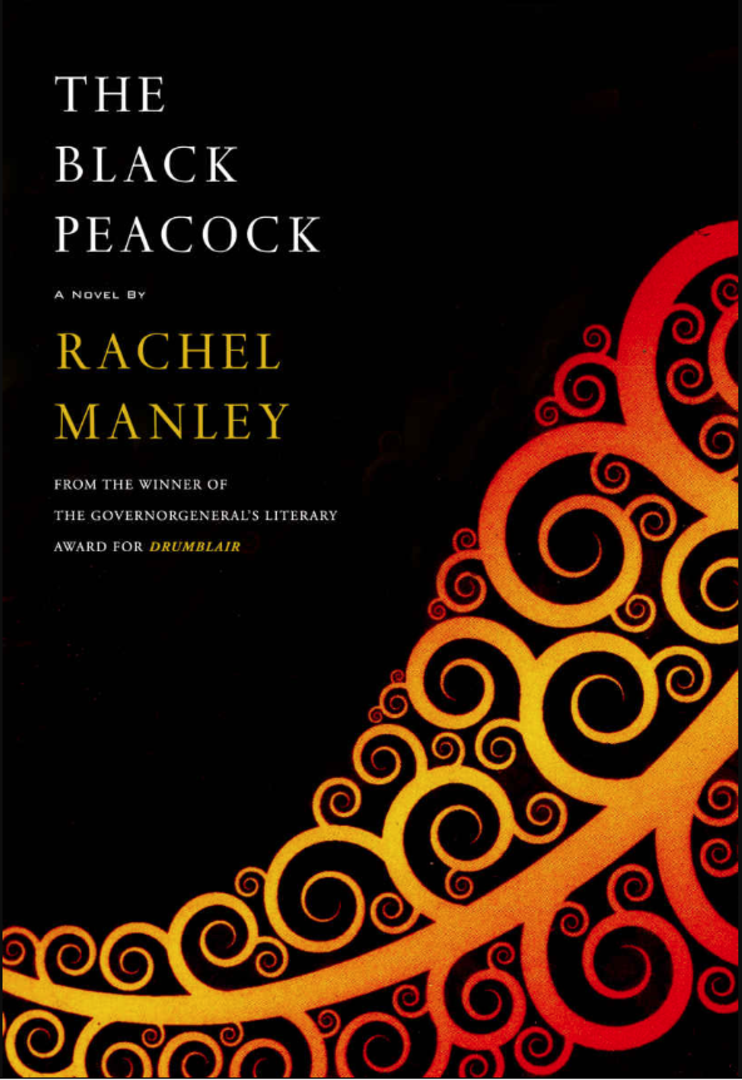Rachel Manley’s The Black Peacock isn’t the typical, tell-you-everything-up-front romance novel. It doesn’t have excessive and self-indulgent sex scenes, or volcanic eruptions of emotionality in the pouring rain. Instead of half-hearted carbon copies of romance novel archetypes, its characters are created whole, in earnest. The Black Peacock and its characters have depth — they deal with the intricacies of relationships over the span of the story, and how the boundaries of relationships are often blurred or undefined.
The story begins on Peacock Island where Daniel, a writer and former professor, has invited Lethe, his muse and the woman he’s had a decades-long love for, to come stay with him. From there, the narrative slips between present day and the memories of both Daniel and Lethe, so that the story somewhat resembles a puzzle that is slowly pieced together.
What’s interesting about Daniel and Lethe’s relationship is that it’s never been defined. Daniel has been in love with Lethe since the day he met her in university, but Lethe has been somewhat cooler toward him with random bursts of affection. Throughout their lives, they move from relationship to relationship, never with one another but always somehow finding their ways back to each other.
However, the narrative focuses on more than just Daniel and Lethe’s relationship. There’s also Lethe’s relationship with her father (whom she idolizes, regardless of the fact that he didn’t raise her), Daniel’s torrid relationship with Mamta, one of his students (which results in Mamta’s decline into madness), and Daniel and Lethe’s marriages (both of which are tepid, at best). This last point is important — it’s as if both spouses can see the inexplicable bond between Daniel and Lethe, regardless of whether the two are willing to admit it or not.
Although the link between nature and relationships is subtle (notable is Daniel and Lethe’s separate reactions to their first steps onto the other’s territory — Daniel at Erehwemos, Lethe’s family home, and Lethe onto Peacock Island), we do become aware of its significance through the peacocks on Peacock Island. Specifically, we see Othello, a peacock who’s been bred to be entirely black. Othello is eerily human, following Lethe around and preening for her, pretending he doesn’t like the attention when he does. Though he’s surrounded by dozens of peahens, he’s never once consummated his relationship with any of them. The connection between Daniel and Othello, in this way, is uncanny.
One thing that may strengthen Daniel and Lethe’s bond is the presence of death in each of their lives. Both grow up motherless, and throughout the narrative, death continues to draw them together, most notably when Lethe’s grandfather Ernest dies, followed not long after by Nora, Lethe’s grandmother. Then there’s the suicide of Blanca, Lethe’s friend from university, as well as Mamta’s suicide — both of which are caused by unexplainable, incurable pain (shame and heartbreak, respectively), and both of which Daniel and Lethe blame themselves for.
Although their relationship’s boundaries are quite undefined throughout, Daniel and Lethe do finally have sex near the end of the novel. It’s short, almost to the point that it could be overlooked if one’s not careful. Notably, this is done in the same ocean that Mamta drowned herself in, perhaps a subtle indication of the intricate relationships we find ourselves woven into, whether we like it or not.
What The Black Peacock does is show us that relationships are complex, very complex, taking twists and turns through life and ending at a point, often death, where the boundaries of that relationship still aren’t clear. Relationships aren’t clear-cut. They’re messy, often tangling several people into the same narrative, regardless of whether they want to be connected to that person or not. It is clear, however, that Daniel and Lethe are tethered to one another with an invisible cord that, though stretched across the world at some points, will always pull them back together.


